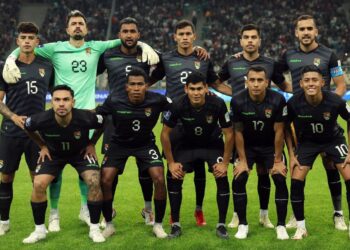Update: Mitt Romney has apparently won Puerto Rico’s Republican primary in a landslide; he’s expected to receive all twenty of its delegates.
Today, voters in Puerto Rico will go to the polls for their Republican Presidential primary. At stake are twenty delegates, and considering the state of the race right now, that’s not an insignificant number (nor is it insignificant more generally—it’s eight more delegates than New Hampshire has). All this despite the fact that Puerto Ricans are not eligible to vote for President in the general election. They will, however, be voting this fall on the question of their future—whether to remain a territory, become a state, become an independent nation, or just become more autonomous. The combination of all these factors—the delegates, the question of statehood, the Republican candidates’ need to straddle between Puerto Rican voters on and off the island and their Republican base—produced the odd campaign that led up to today’s vote.
Last Wednesday, in an interview with the Puerto Rican newspaper El Vocero, Rick Santorum insisted that the territory’s statehood—if it does want statehood—would be conditioned on its adoption of English as its official language. He went on to say that this is “a requirement we put on other states, as a condition for entering the union.” More than once, he referred specifically to the idea that this is an explicit legal requirement: “We are not doing anybody on this island a favor by not following the law, which is that this is a society…that will speak English in addition to speaking Spanish.”
But English is already an official language in Puerto Rico—like favorite ice cream flavors, or nationalities in a marriage, it is possible to have more than one. Besides, there is no Constitutional provision or law that says a territory must declare English its official language to qualify for statehood. In fact, not all states have an official language, and some have two. (Someone should tell the former Senator from Pennsylvania that his own state has never declared an official language.) The full transcript of the interview makes one wonder if Santorum himself is really fluent in English: “if you’re going to participate in, uh, as a state in, uh, in the United States, then you need to participate in the language of the people speaking in, uh, in the states.”
Already, Santorum has lost supporters; former Puerto Rican Senator Oreste Ramos rescinded his endorsement after Wednesday’s imbroglio, saying, “Such a requirement would be unconstitutional, and also would clash with our sociological and linguistic reality.”
Questionable implications aside, this was a pretty hard line to take during a visit to the island territory, especially in contrast to his opponents’ strategies. In advance of Sunday’s Republican Primary in Puerto Rico, Mitt Romney and Newt Gingrich each dispatched a child of theirs fluent in Spanish to do a bit of “Hispandering.” Romney aired a new Spanish-language radio ad that featured his son Craig Romney and touted the support of Puerto Rico’s governor, Luis Fortuño (who Ryan Lizza speculates would make a strong Vice-Presidential candidate). Gingrich sent his daughter Kathy Gingrich Lubbers to hold a town-hall style meeting in San Juan and to campaign on his behalf on Thursday and Friday.
The next day, a spokeswoman for Mitt Romney’s campaign established a clear distinction: though he supports the notion of English as the language of American commerce, Romney would not insist on English proficiency as a prerequisite for Puerto Rican statehood. Santorum later defended his comments, this time without any specific legal language, though he did still stray from the studiously neutral position his rivals have adopted when it comes to statehood, reiterating that he thinks a more official adoption of English would be a condition of the territory’s acceptance into the Union, Still, in something of a walk-back, his camp insisted that he was misquoted and he told reporters that the original story was “crap,” presumably trying to save face after having discussed the necessity of complying with nonexistent legislation. Another Santorum representative assured the press, “He knows there’s no current federal law in place,” despite the fact that Santorum had said very clearly about English as a prerequisite: “That is, in my understanding, required under the law in the first place.”
Yesterday, in an interview for ABC’s “This Week,” Santorum didn’t exactly clarify the matter for Jonathan Karl, who asked what he meant by his original statement, since there are in fact no such requirements in place in the United States. Santorum insisted once again, “Yes, there were requirements put on other states when they came into the union that English be the principal language and that it be taught and spoken universally in those states.” He continued to mistake Puerto Rico for a country, correcting himself unconvincingly by switching to “island.” But at least he didn’t miss an opportunity to hold Romney’s platitudes against him; he accused his opponent of a logical flip-flop—if Romney supports making English the official language of the United States, it would be hypocritical, Santorum argued, not to insist that Puerto Rico adopt it. “There’s no way he would stand for that,” Santorum said. “Yet to get twenty delegates, he’s willing to say whatever he needs to say in order to get those votes.” And it seems Santorum’s willing to say whatever it takes to lose them.
Photograph: Christopher Gregory/Getty
Source link : https://www.newyorker.com/news/news-desk/nobody-knows-in-america-puerto-ricos-in-america
Author :
Publish date : 2012-03-18 03:00:00
Copyright for syndicated content belongs to the linked Source.







